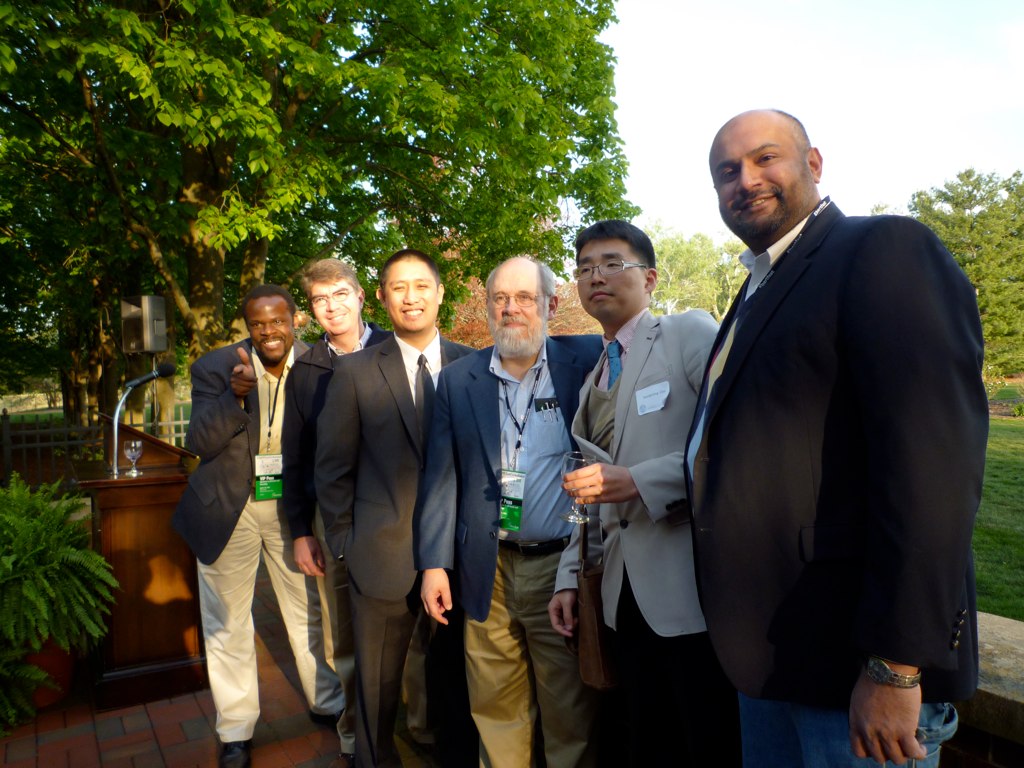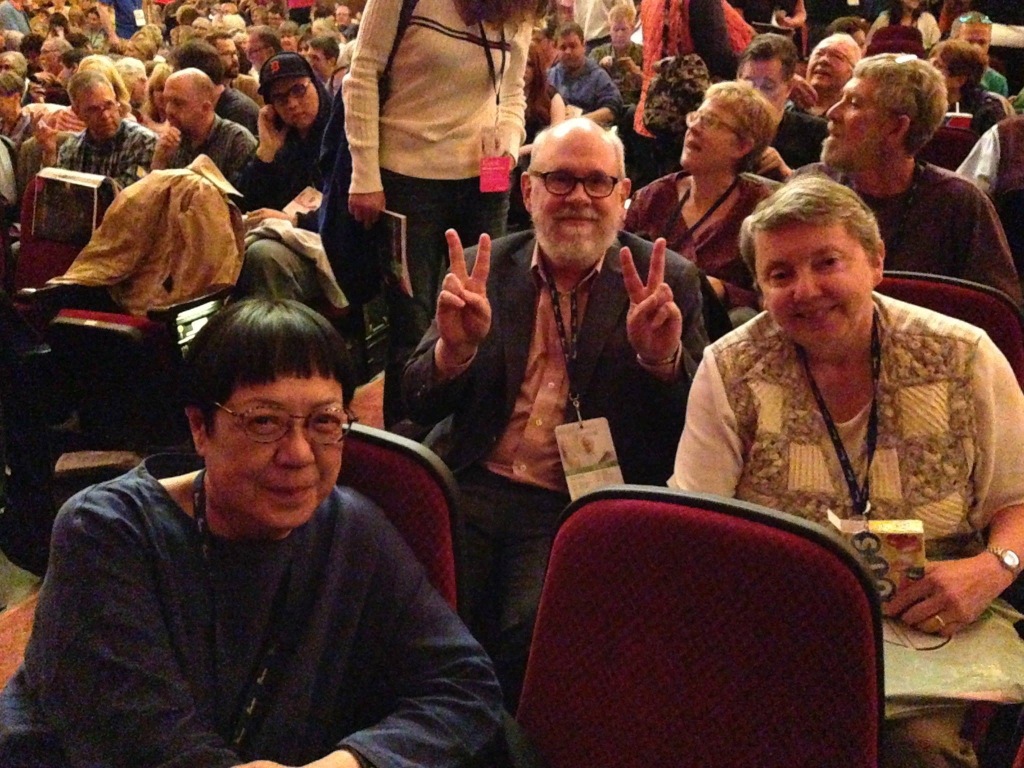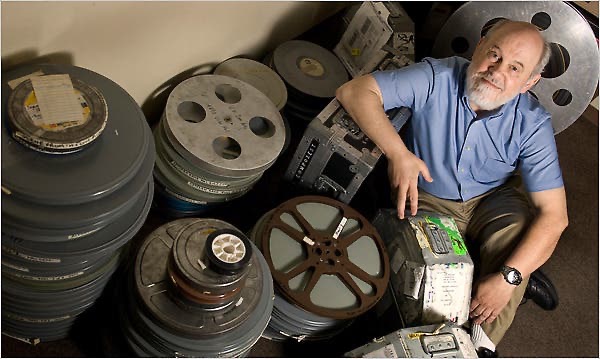
There are others more qualified than I to discuss the irreplaceable film legacy of David Bordwell. I will speak to the kind and generous spirit who was the David I knew.
When I was still finding my voice as a film critic in the early naughts, I had first heard of David’s name in online film forums (Peyups.com anyone?). Roger Ebert was my champion at the time, and he had not yet made the entirety of his body of work available. As I would champion Roger’s views online, I would often see other threads denouncing him as populist; proclaiming the film scholar David Bordwell as the truth, the way and the life (Neoformalism!). The world wide web had not yet been a decade old, without wikipedia to look people up. All we had online, at least in Philippine film circles, were what was available via news publications, or what others had shared on message boards. I felt then this dichotomy between film critics and the academe; the popular and the esoteric.
After Roger lost his speech to cancer and started expanding his writing his blog, I would come to hear David’s name way more often, with Roger offering his space to share David’s thoughts and expertise and going so far to call David his hero, and Bordwell’s site, “the world’s best film blog.”
What astonished me about David’s writing was his precision and clarity. Academic scholars have had the reputation of being highfalutin and distant. But David’s words were approachable yet somehow complete, when taken in their entirety. As the great New York Times film critic Manohla Dargis noted upon learning of David’s passing today, she writes:
One thing that I loved and greatly admired about Bordwell was how – with passion, analytic precision and boundless enthusiasm for the medium – he carved out an inviting, sui generis intellectual space that could be enjoyed by scholars and general readers alike.
He was a paragon of scholarly achievement, yes and of course, but he was also a lot of fun to read – which isn’t something you can say of most academics.
Remembering Professor Emeritus David Bordwell, University of Wisconsin-Madison
I was blessed to have the chance to meet David at Ebertfest in 2010, where I was slated to participate in Q&A for the film DEPARTURES (2008) with the film’s director Yojiro Takita. It was the first time I had ever participated in such a public forum. Plus with all my preconceived notions of what Mr. Bordwell must have been like, I, along with my fellow Far Flung Correspondents (film fans whom Roger had invited from around the world through his blog), were agog in nervousness and anticipation.

David met us at the Festival Gala and welcomed us with open arms, literally embracing us and making us all feel like we were old friends. And it was not just for show. From each day onwards, every meeting we had was met with big bright smiles and warm company.
In whatever panel he participated it in, he was clearly the smartest guy in the room, bar none. The depth of his knowledge did not extend only to cinematic scholarship, but to nuanced understanding of the business of film, whether it was in Hollywood or Independent Circles. I remember one panel discussing the possible future of movies without theatres, where his input on the history leading up to it was just a masterclass.

The breadth of his awareness in international cinema was awesome. I was lucky to have long conversations with him about the rise of South Korean Cinema in the 21st Century and its comparisons with the rise of Hong Kong Cinema in the 1980s and 90s. Few film scholars were as comprehensive on Asian Cinema as he was, with his books on Hong Kong film history and Japanese masters such as Ozu. When I wrote my essay on Hong Kong’s Female Action Heroes, David’s book answered ALL my questions. It pleased me to no end when he thanked me for giving him a shoutout in it.
Women play a heroic role in these sagas to an extent without parallel in European or Anglo-American adventure yarns. From the swordswomen of silent Shanghai films through Xu Feng of the King Hu films and Angela Mao to Michele Yeoh in Yes, Madam! (1985) and Anita Mui in Saviour of the Soul (1991), Hong Kong action cinema has celebrated women warriors.
David Bordwell, p.123 Planet Hong Kong
In all my times I’ve seen him presenting on any stage, I never saw David bring notes. He could dive into almost any subject for 30 minutes and deliver it in a compelling and absorbing way without hesitation or pause, much in the same way like Roger did. And yet he could still talk to you like a passionate film fan if you really cared about cinema. One time when we were seated together after the Ebertfest screening of HE WHO GETS SLAPPED (1924), I noted its macabre qualities. He then gleefully recommended similar films of the time which might interest me (they escape me now). I remember his playfully raised eyebrow, “Those are some sick puppies my friend!” There was another time when we were both on a panel of a film we both loved but whom A.O. Scott (another film critic I revere) disliked in his written review. David was incensed when I mentioned it. “It was a stupid review!”
Despite his reputation and prestige, it never felt like he was invested in giving sermons. He was more than willing to defer to others first and seemed more interested in getting to know what others thought than to elaborate what he already knew. The University of Wisconsin-Madison, at which he and his wife Kristin Thompson served for many years, states:
His pedagogical strategy was not so much to impart knowledge as to draw it out from students, yielding fresh insights on whatever film, director, or theoretical issue was on the agenda for that day. Professor Maria Belodubrovskaya (University of Chicago) speaks for generations of former Bordwell students in recalling the sense of participation available to all members of a Bordwell class. ‘What struck me about David’s teaching was that in the classroom he did not behave as a big-time scholar but as more of a leader,’ she recalled. ‘Everyone was treated as no less curious and observant than the instructor himself.’
This generosity and warmth is something I will forever remember David for. He didn’t have to go out of his way to welcome us in Roger’s circle those many years ago. But like Roger himself, he was a connector who preferred to include than exclude. Something so many academics (and people in general) can learn from if they really are interested in teaching, which David Bordwell was no less than exemplary at. He is proof that the love of film need not be esoteric nor distant. Cinema and its study owe him a great debt.
I leave you one memory of David which makes me smile through this very sad day. On the final day of Ebertfest 2010, as I head to the Illini Union’s newsstand to look for keepsakes to bring home, I spot David looking through the dailies.
“What are you looking for?” I ask.
“I got a profile in the Times!” He answered.
That profile is a wonderful remembrance and tribute to David, written by Manohla Dargis. It’s worth a read.

LAST Sunday the film historian David Bordwell watched movies from Spain, Denmark and Romania at the Wisconsin Film Festival here in Madison, where he has lived if rarely stayed still for four decades. He had just returned from the Hong Kong International Film Festival, after which he drove some 400 miles (and back) from Madison to Bloomington, Ind., to deliver a lecture. In between all this flying, driving and watching, he also posted some 14,000 words on his blog, davidbordwell.net. Then it was off to Ebertfest in Champaign, Ill., a film festival programmed by Roger Ebert, who has called Mr. Bordwell “our best writer on the cinema.”
He might be retired, and you might never have heard of him, but at 62 Mr. Bordwell remains extraordinarily prolific and perhaps more influential than ever. His blog is read by academics but also routinely featured on aggregate sites like moviecitynews.com next to industry dispatches from Variety. “Minding Movies,” an anthology of blog posts by him and Kristin Thompson, his wife and frequent collaborator, is due next spring. And new editions of their textbooks “Film Art” (ninth) and “Film History” (third) were issued last year. If an undergraduate takes a single film class, it’s a good bet that one of these books will be on the syllabus.
